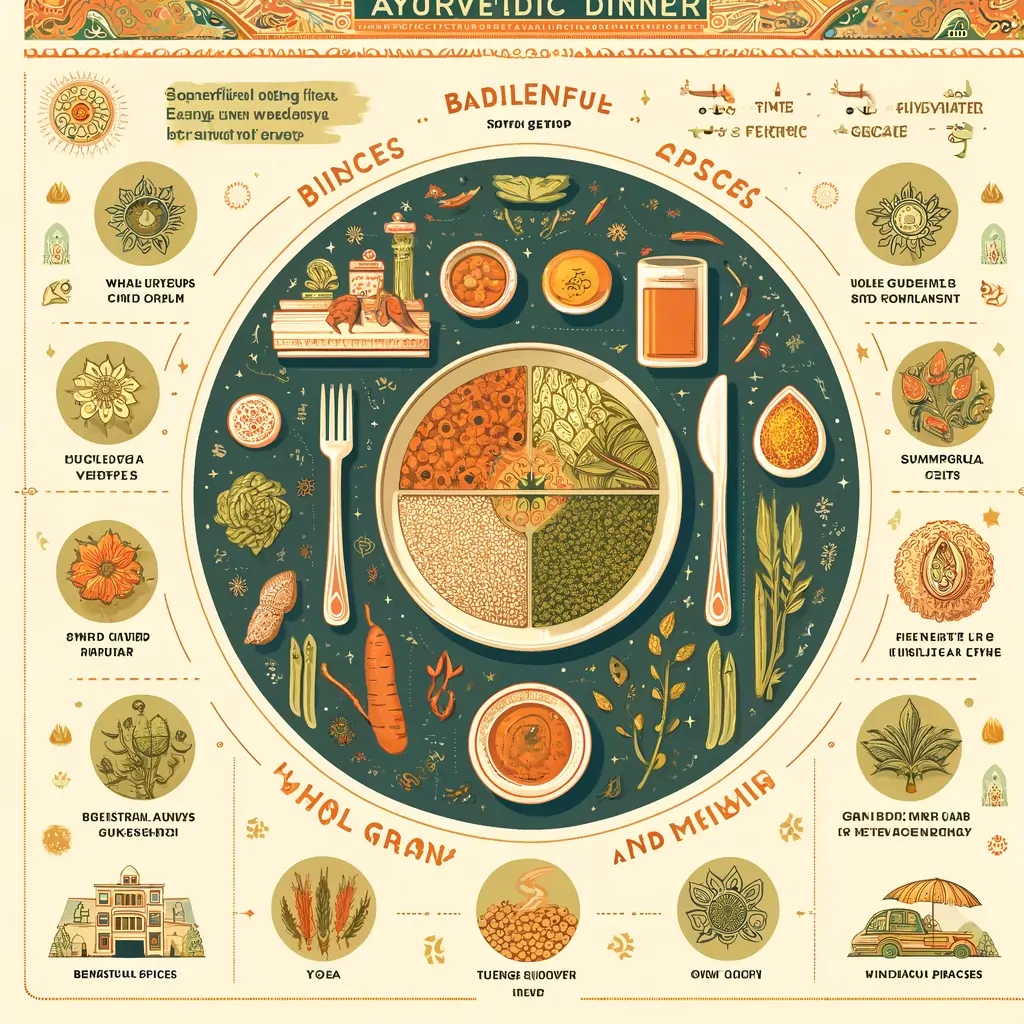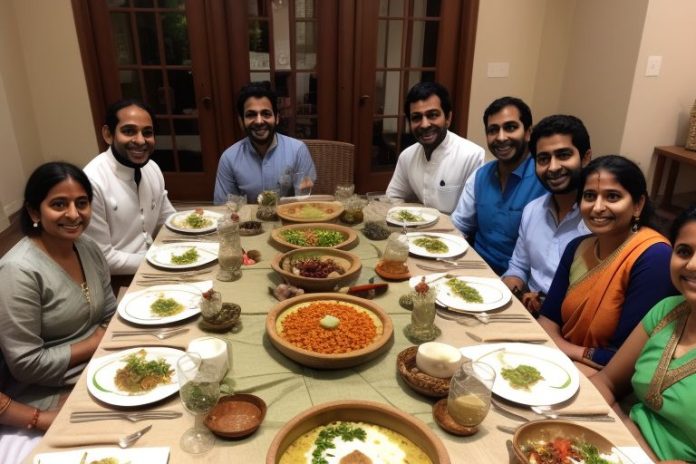Ayurveda, the ancient Indian system of medicine, provides a holistic approach to health that emphasizes the importance of a balanced diet tailored to one’s body type and the seasons. The concept of an Wellhealthorganic.com Ayurvedic dinner is not just about what is consumed but also about how, when, and why we eat. This approach to evening meals can have profound effects on one’s health, vitality, and overall wellbeing.
Understanding Wellhealthorganic.com Ayurveda and Its Dietary Principles
Ayurveda is built on the principle that the universe is made up of five elements: earth, water, fire, air, and ether. These elements combine to form three doshas or life forces — Vata, Pitta, and Kapha — which are present in every individual in varying proportions. An Wellhealthorganic.com Ayurvedic diet aims to balance these doshas through the right choice of foods, which can enhance one’s energy and promote internal harmony.

The Significance of Dinner in Ayurveda
In Ayurveda, the timing of meals is crucial. Dinner, being the last meal of the day, is recommended to be lighter than lunch but still nourishing enough to satisfy hunger without overburdening the digestive system. A well-planned Ayurvedic dinner aids in digestion and sleep, and supports the body’s natural purification processes overnight.
Components of an Ayurvedic Dinner
A typical Ayurvedic dinner includes a combination of foods that are easy to digest but are nutritious enough to sustain the body through the night. These often include:
- Whole grains: such as rice or barley, which are grounding and filling.
- Cooked vegetables: seasonal choices that align with one’s dosha.
- Proteins: such as mung dal or chickpeas, especially beneficial for their light and nourishing properties.
- Spices and herbs: like turmeric, cumin, coriander, and fennel, which aid digestion and add flavor.
The Role of Taste in Wellhealthorganic.com Ayurvedic Cuisine
Taste, or ‘Rasa’, plays a pivotal role in Wellhealthorganic.com Ayurvedic cuisine. Ayurveda identifies six tastes: sweet, sour, salty, bitter, pungent, and astringent. A balanced meal should include all these tastes as they each have a vital role in balancing the doshas. For example, sweet foods like grains and proteins are grounding and nourishing, helping to calm Vata and Pitta, while bitter and astringent tastes can help balance Kapha.
Ayurvedic Recipes for a Balanced Dinner
Creating an Ayurvedic dinner that caters to all dosha types involves incorporating a variety of ingredients and spices. Here are a few recipes that symbolize a balanced approach to an Ayurvedic evening meal:
- Mung Dal Soup: Light and easy to digest, mung dal is ideal for all dosha types. Cooked with cumin, turmeric, and a hint of asafoetida, it’s perfect for soothing the digestive system.
- Steamed Basmati Rice: A staple in Ayurvedic cooking, it pairs well with dal or vegetables.
- Seasonal Stir-fried Vegetables: Choose vegetables like zucchini, carrots, and asparagus, seasoned with mild spices.
- Chapati: A whole wheat flatbread that complements any dish without overwhelming the digestive system.
The Benefits of an Ayurvedic Dinner
An Ayurvedic dinner can transform your health by improving digestion, boosting metabolism, and providing peaceful sleep. The balance of tastes and the nutritional content help maintain or restore dosha balance, which is essential for health according to Ayurvedic principles.
Integrating Wellhealthorganic.com Ayurveda into Modern Life
Incorporating Wellhealthorganic.com Ayurvedic principles into the modern lifestyle doesn’t have to be daunting. It starts with understanding one’s body type and the dominant dosha, then gradually shifting meal patterns and choices to align more closely with these natural principles. The benefits, including improved energy, better digestion, and a more vibrant health, are well worth the effort.
Conclusion: The Art of Ayurvedic Dining
Adopting an Wellhealthorganic.com Ayurvedic approach to dinner is more than just choosing certain foods; it’s about embracing a lifestyle that values balance, harmony, and the natural rhythm of our bodies. By understanding and applying Ayurvedic principles to our evening meals, we can enjoy not only the flavors of the food but also the enhanced health and wellbeing that comes from a balanced diet.

